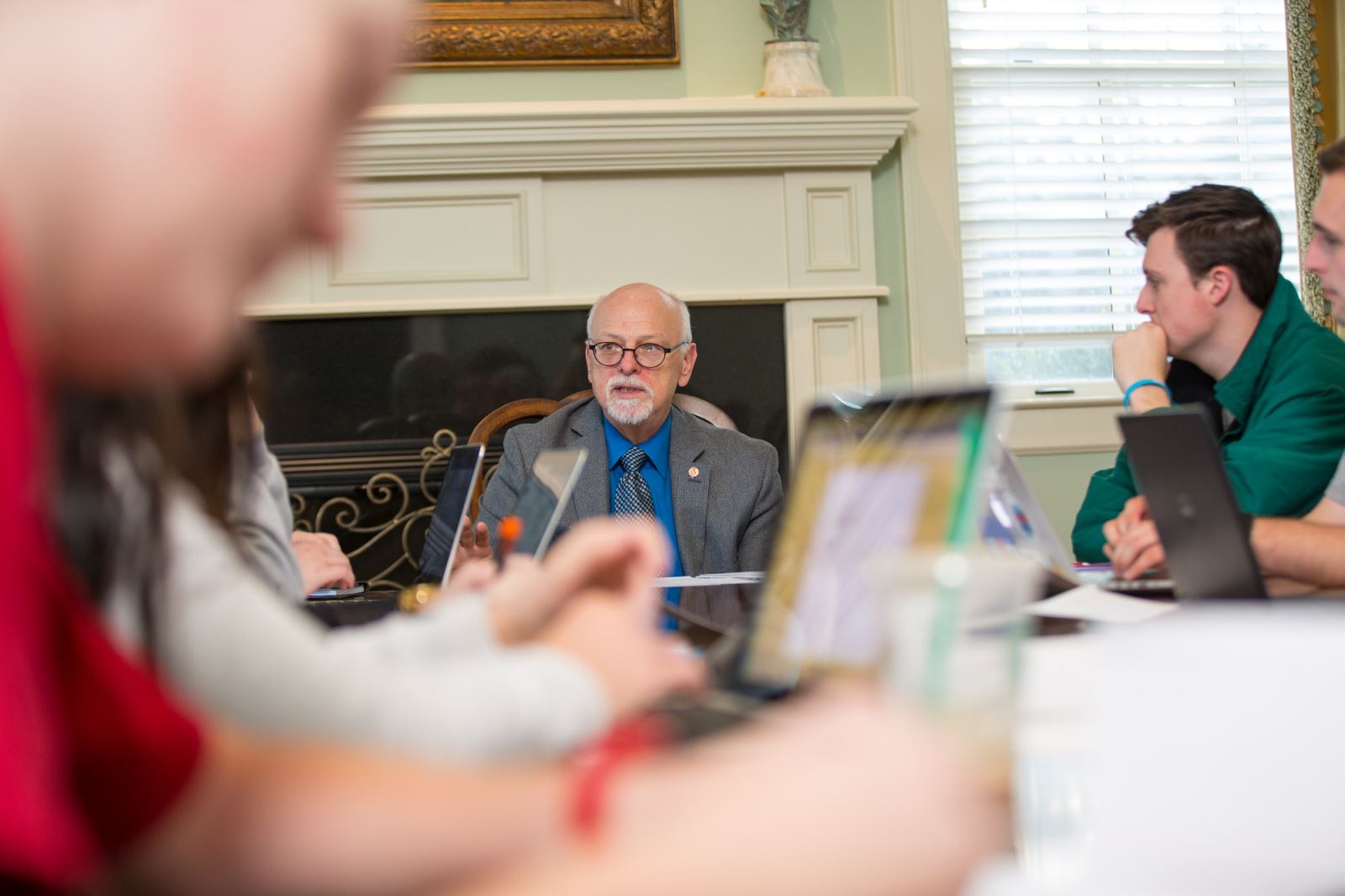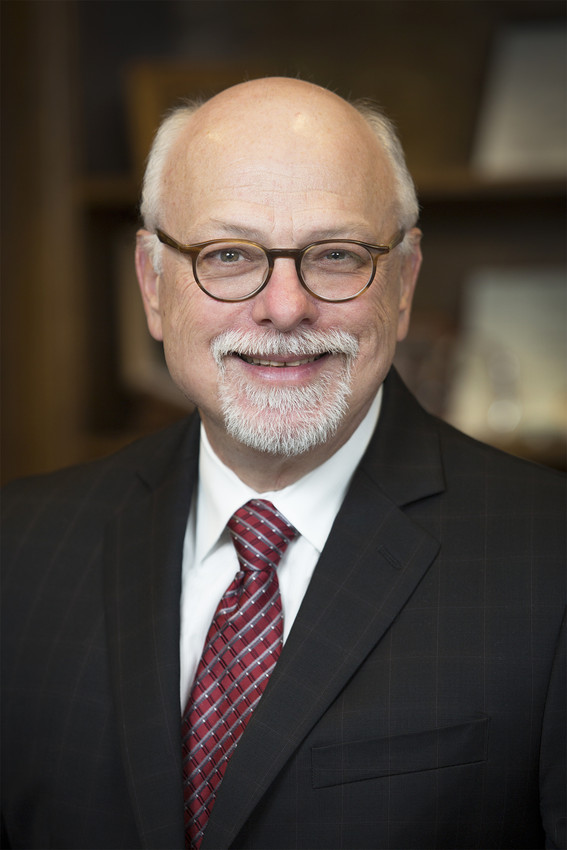FAYETTEVILLE, Ark. —Every Monday night this semester, University of Arkansas Chancellor Joe Steinmetz has gotten an up-close update on the student perspective, thanks to the Honors College Forum course Flagship U! The 14 students who gather around his dining room table for class, and in his kitchen to share pizza after class, are not shy about expressing their opinion on issues ranging from athletics to alcohol on campus.
“It’s given me more insight into this generation of students – how they think, what they think, and what’s important to them. They’re not afraid to voice their opinions,” Steinmetz said.
As part of this course, Steinmetz will deliver a public lecture titled “The Fate of the Flagship U” at 5:15 p.m. Wednesday, April 5, in Gearhart Hall Auditorium (GEAR 26).
Steinmetz describes the current state of flagship universities as one of transition. “What is the purpose of a college education, and who benefits? The university education has transitioned from being considered a public good to mainly a private good,” he said.
This change is reflected in state funding, which has dropped from about 70 percent of the U of A’s budget 20 years ago to just 30 percent now, with the rest of needed funds coming from tuition and private funds.
“Funding bothers me – it’s one of the things that keeps me up at night,” Steinmetz said. “Tuition increases need to be kept around the rate of inflation.”
 Steinmetz plans to discuss several trends that are revolutionizing academe, including experiential learning. His students in Flagship U have expressed “a lot of excitement about experience outside the classroom – study abroad, service learning, and research with faculty. That reinforces the value to me of those kinds of experiences,” he said.
Steinmetz plans to discuss several trends that are revolutionizing academe, including experiential learning. His students in Flagship U have expressed “a lot of excitement about experience outside the classroom – study abroad, service learning, and research with faculty. That reinforces the value to me of those kinds of experiences,” he said.
Steinmetz also sees cross-disciplinary collaboration as a major shift that he supports. He points to his own area of research, neuroscience, as a new field that brought together scientists working in biology, physiology and anatomy, and behavior and cognition.
“We discovered that the brain is pretty complicated, and it takes multiple approaches at multiple levels to study complex phenomena,” he said.
Steinmetz also emphasized the economy that exists in collaborative efforts.
“We don’t have the funds to invest in everything,” Steinmetz said, “but we can keep the discussion going by combining funding on projects that benefit several disciplines.”
Flagship U! is part of a new series of Honors College Forums that unite honors students with campus leaders to discuss timely issues.
“These courses provide an exceptional experience for our students,” said Honors College Dean Lynda Coon. “Thirty years from now, they’ll look back and remember that they met weekly with the chancellor around his dining room table. They’ve had an amazing opportunity to develop a totally new perspective on the university, leadership, and their own experience here.”
The fall 2017 Honors College Forum, Arkansas Business, will be led by Matt Waller, dean of the Sam M. Walton College of Business.
About the Honors College: The University of Arkansas Honors College was established in 2002 and unites the university’s top undergraduate students and professors in a learning environment characterized by discovery, creativity and service. Each year the Honors College awards up to 90 freshman fellowships that provide $70,000 over four years, and more than $1 million in undergraduate research and study abroad grants. The Honors College is nationally recognized for the high caliber of students it admits and graduates. Honors students enjoy small, in-depth classes, and programs are offered in all disciplines, tailored to students’ academic interests, with interdisciplinary collaborations encouraged. Fifty percent of Honors College graduates have studied abroad – five times the national average – and one hundred percent of Honors College graduates have engaged in mentored research.
About the University of Arkansas: The University of Arkansas provides an internationally competitive education for undergraduate and graduate students in more than 200 academic programs. The university contributes new knowledge, economic development, basic and applied research, and creative activity while also providing service to academic and professional disciplines. The Carnegie Foundation classifies the University of Arkansas among only 2 percent of universities in America that have the highest level of research activity. U.S. News & World Report ranks the University of Arkansas among its top American public research universities. Founded in 1871, the University of Arkansas comprises 10 colleges and schools and maintains a low student-to-faculty ratio that promotes personal attention and close mentoring.
Topics
Contacts
Lynda Coon, dean
Honors College
479-575-7678,
Kendall Curlee, director of communications
Honors College
479-575-2024,
